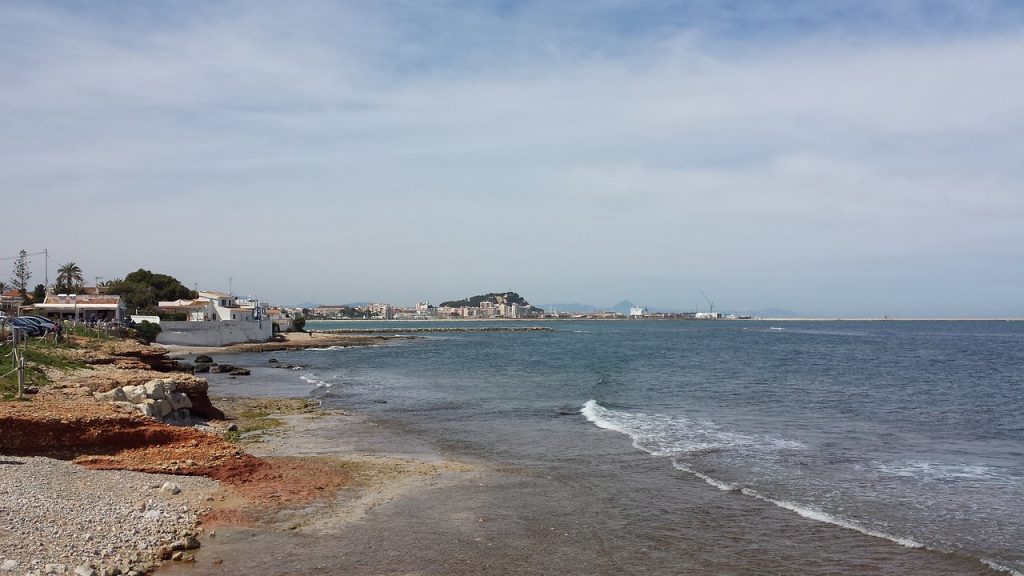Nestled on the eastern coast of Spain, Dénia is a vibrant port city that boasts a rich tapestry of history, culture, and natural beauty. This charming city is part of the Alicante province in the Valencian Community, a region known for its stunning landscapes, delicious cuisine, and warm Mediterranean climate. Dénia serves as a gateway between the mainland Spain and the Balearic Islands, with ferries regularly departing from its bustling port to Ibiza, Mallorca, and beyond. In this article, we'll explore the location of Dénia, its historical significance, cultural highlights, and the natural wonders that make it a must-visit destination on Spain's Costa Blanca.
Geographical Setting
Dénia is strategically located on the northern edge of the Alicante province, approximately 100 kilometers south of Valencia and about 90 kilometers northeast of Alicante city. It lies on the coast of the Mediterranean Sea, nestled between the Montgó Mountain to the north and the expansive sandy beaches stretching towards the south. The city's geographical coordinates are 38.840781 latitude and 0.105667 longitude, positioning Dénia as a coastal gem that enjoys more than 300 days of sunshine per year.
Historical Significance
The history of Dénia dates back to ancient times when it was inhabited by the Iberians. Later, it became an important commercial port and naval base for the Romans, who named it Dianium. Throughout the centuries, Dénia saw the rule of the Moors, the Christians during the Reconquista, and even the brief rule of the British during the War of the Spanish Succession in the early 18th century. Each of these periods has left an indelible mark on the city's architecture, culture, and traditions, making Dénia a living museum of Mediterranean history.
One of the most iconic historical sites in Dénia is the Castle of Dénia. Situated on a hill overlooking the city and the sea, the castle is a testament to Dénia's strategic importance through the ages. It was originally built by the Muslims in the 11th and 12th centuries and later expanded by the Christians. Today, it houses the Archaeological Museum, where visitors can learn about the city's rich past.
Cultural Highlights
Dénia is not only known for its historical treasures but also for its vibrant cultural scene. The city is recognized by UNESCO as a Creative City of Gastronomy, a testament to its culinary excellence. The local cuisine is a delightful blend of Mediterranean flavors, with seafood taking center stage. Dénia is famous for its red prawn, a delicacy that attracts food enthusiasts from around the world. The city's numerous restaurants and tapas bars offer a culinary journey through traditional Valencian dishes and innovative gastronomic creations.
The city also hosts numerous festivals throughout the year, celebrating its diverse heritage and community spirit. One of the most anticipated events is the Bous a la Mar, part of the Festa Major, where participants try to lead bulls into the sea from the city's historic center, showcasing a unique tradition that has been declared a Festival of National Tourist Interest.
Natural Wonders
Dénia's natural surroundings are as captivating as its cultural and historical attractions. The Montgó Natural Park, which dominates the northern landscape of the city, offers a haven for nature lovers and hikers. Its diverse flora and fauna, along with stunning views of the coastline, make it a popular destination for outdoor enthusiasts.
The city's coastline stretches for over 20 kilometers, featuring a mix of rocky coves and sandy beaches. The beaches of Las Marinas to the north and Las Rotas to the south are particularly popular, offering pristine sands, crystal-clear waters, and a range of water sports activities. The marine reserve of Cabo de San Antonio, located between Dénia and Jávea, is a paradise for snorkeling and scuba diving, with its rich underwater biodiversity.
A Gateway to the Balearic Islands
Dénia's port is not only a bustling hub for maritime trade but also a key departure point for travelers heading to the Balearic Islands. Ferries from Dénia to Ibiza, Mallorca, and Formentera operate regularly, making the city a convenient starting point for exploring these popular Mediterranean destinations. The ferry journey offers a unique perspective of the Spanish coast and the islands, with opportunities to witness stunning seascapes along the way.
Conclusion
Dénia, with its strategic location on Spain's eastern coast, offers a blend of historical depth, cultural richness, and natural beauty. From its ancient castle and archaeological treasures to its UNESCO-recognized culinary scene and vibrant festivals, the city is a microcosm of the Mediterranean way of life. Whether you're exploring the Montgó Natural Park, relaxing on its beautiful beaches, or embarking on a culinary adventure, Dénia promises an unforgettable experience for travelers seeking the essence of Spain's diverse heritage. The city's unique position also makes it an ideal gateway for those looking to venture further into the Balearic Islands, with its port serving as a bridge across the Mediterranean. Dénia embodies a harmonious blend of the old and the new, where centuries of history coexist with a lively contemporary scene. It's a place where every corner tells a story, every dish reveals a tradition, and every sunset brings the promise of another day in paradise.
Frequently Asked Questions (FAQs)
What is Dénia known for?
Dénia is renowned for its historical significance, UNESCO-recognized culinary scene, beautiful beaches, and as a gateway to the Balearic Islands
Where is Dénia located in Spain?
Dénia is located on the eastern coast of Spain, in the Alicante province of the Valencian Community, between Valencia and Alicante cities
Can you visit the Balearic Islands from Dénia?
Yes, Dénia serves as a major departure point for ferries to the Balearic Islands, including Ibiza, Mallorca, and Formentera
What are some must-visit attractions in Dénia?
Key attractions include the Castle of Dénia, Montgó Natural Park, the Archaeological Museum, and the city's numerous sandy beaches
Is Dénia suitable for food enthusiasts?
Absolutely, Dénia is a UNESCO Creative City of Gastronomy, offering a rich culinary experience with its local seafood and traditional Valencian dishes
